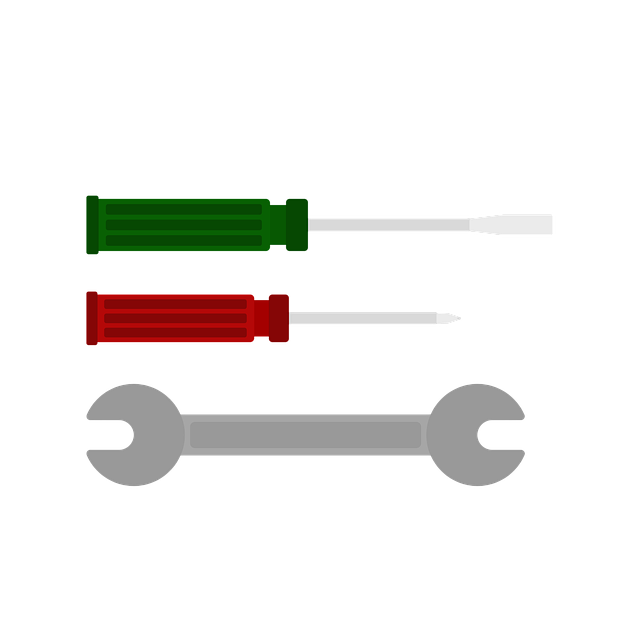Maintaining your HVAC system's air filters regularly is a critical step for preserving both air quality and system efficiency. Clogged or dirty filters restrict airflow, prompting the system to work harder, which can lead to higher energy bills, increased wear on parts, and potentially necessitate HVAC repair services. To prevent these issues, it's advisable to inspect and replace filters every 1 to 3 months, tailored to your specific filter type and usage patterns. Regular maintenance ensures optimal system performance, minimizes the likelihood of costly repairs, and contributes to a healthier living environment. Implementing a routine inspection schedule helps extend your HVAC system's lifespan and keeps utility costs manageable, all while maintaining consistent indoor comfort.
Maintaining an efficient HVAC system is pivotal for both comfort and energy savings in your home. A critical aspect of this maintenance is the regular replacement of air filters, which play a vital role in system performance and indoor air quality. This article delves into the significance of HVAC filter upkeep, providing a comprehensive guide on recognizing when filters need changing, the impact of neglecting this task, and the best practices for selecting and replacing filters to optimize your system’s functionality. From understanding the various types of filters available to grasping the frequency with which they should be replaced, homeowners will glean valuable insights to ensure their HVAC systems operate at peak efficiency. Additionally, we’ll explore the relationship between filter maintenance and energy costs, highlighting how consistent upkeep can lead to significant savings. For those seeking professional assistance or encountering issues beyond a filter replacement, information on reliable HVAC repair services is also covered. With expert tips and a clear understanding of the stakes involved, this article equips you with the knowledge to keep your home’s climate control system running smoothly.
Understanding the Importance of HVAC Filters

Regular maintenance of an HVAC system is pivotal for maintaining its efficiency and longevity, with a key component being the replacement of worn filters. These filters play a significant role in the air quality within your home or business, as well as the overall performance of the HVAC system. Over time, filters become clogged with dust, pollen, pet dander, and other airborne debris, restricting airflow and potentially leading to a host of issues that may require HVAC repair services. When filters are dirty or blocked, the system must work harder to circulate air, which not only reduces its effectiveness but can also lead to increased energy consumption and higher utility bills. Furthermore, compromised airflow can cause the system’s components to wear out faster, necessitating costly repairs or early replacement. By understanding the importance of regularly inspecting and replacing HVAC filters, property owners can ensure their systems operate at peak performance, providing cleaner, more comfortable environments while minimizing repair needs. Schedule routine filter checks and replacements as part of a comprehensive maintenance plan to safeguard your HVAC system’s health and your indoor air quality.
Signs Your HVAC Filter Needs Replacement

When your HVAC system is operating, the filter plays a critical role in maintaining indoor air quality and overall system efficiency. Over time, filters can become clogged with dust, pollen, pet dander, and other airborne contaminants. Regular monitoring for signs of a dirty or blocked filter is essential for prolonging the life of your HVAC system and ensuring it functions at peak performance. One of the most evident indicators that your filter needs replacement is an increase in allergy symptoms among residents, as a clogged filter can recirculate irritants throughout your home. Another sign is noticing a decrease in airflow from your vents; weak airflow often correlates with a filter that’s too dirty to allow proper air movement. Additionally, if your energy bills have spiked unexpectedly, it could be a sign that your HVAC system is working harder due to a clogged filter, which can lead to higher energy consumption and costs. It’s advisable to check and replace your HVAC filter every 1 to 3 months, depending on the type of filter you have and how often your system is used. Regular maintenance, including timely HVAC repair for any issues, is key to ensuring your system operates efficiently and effectively, thereby maintaining a comfortable and healthy living environment.
Effective HVAC maintenance, particularly the replacement of worn filters, is pivotal for maintaining optimal system performance. As outlined in this article, neglecting to update these filters can lead to a host of issues, from reduced airflow to increased energy consumption and potential system damage. Recognizing the signs your HVAC filter requires attention—such as visible dirt, decreased air quality, or a spike in utility bills—is crucial for safeguarding your comfort and investment. Regularly scheduled filter replacements by professionals in HVAC repair can prevent these complications, ensuring your system operates efficiently throughout the year. Keep this critical maintenance task at the forefront to avoid unwanted expenses and disruptions due to preventable HVAC issues.
